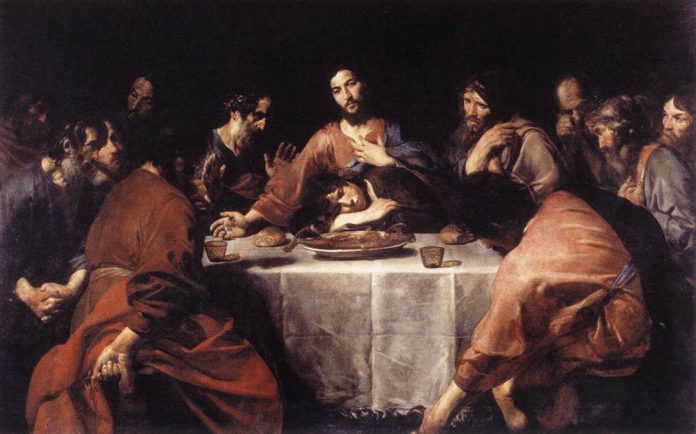“I pray that all of them may be one, Father, just as you are in me and I am in you. May they also be in us so that the world may believe that you have sent me.” John 17: 20-21
The triumphant rise of modern atheism, which today has for its object to threaten the dominance of religion everywhere, can be attributed mainly to three causes: (1) the design of Satan in human affairs from the time of Adam and Eve forward (2) the modern proliferation of Christianity’s fragmentation (and therefore weakening) thanks largely to Martin Luther and others of his ilk (3) the modern unwillingness of Christians to be united in belief as they once were within the Catholic Church during the Middle Ages when atheism was rarely to be found.
The common-sense need for Christian unity, or any other kind of unity, was recognized long before the coming of Christ. The ancient writer Aesop in his fable “The Bundle of Sticks” taught the world a simple story of how we defeat ourselves by refusing to be united with others. Here follows the illustration from Aesop:
A certain Father had a family of sons who were forever quarreling among themselves. No words he could say did the least good, so he cast about in his mind for some very striking example that should make them see that discord would lead them to misfortune.
One day when the quarreling had been much more violent than usual and each of the sons was moping in a surly manner, he asked one of them to bring him a bundle of sticks. Then handing the bundle to each of his sons in turn he told them in turn to try and break it. But although he one tried his best, none was able to do so. The father then untied the bundle and gave the sticks to his sons to break one by one. This they did very easily.
“My sons, said the Father, “do you not see how certain it is that if you agree with each other and help each other, it will be impossible for your enemies to injure you? But if you are divided among yourselves, you will no stronger than a single stick in that bundle?
This lesson, that in unity is strength, is at the heart of all human goals that are efficiently accomplished. It is at the heart of family happiness. It is at the heart of political, military, and economic success.
For example, when the United States was first founded, there was no federal Constitution for eight years. There were Articles of Confederation, but these did not make a Constitution with teeth in it. Thus, on the international trade scene the newly independent American states were not able to compete effectively. In particular, there was no central government to co-ordinate and direct trade between the American states and foreign countries.
On a certain occasion, John Adams discovered by conversation with a British diplomat that American businesses were at a disadvantage because the British companies would make separate deals with separate American states, thus forcing the American states into competition with each other by lowering their prices. This defect was corrected when the United States created its Constitution in 1989 and the newly formed federal government became a critical player.
One can immediately see where this logic must lead us. The true religion of Christ must be united (as Christ prayed for it to be united); must have a central government (a Vatican); must have absolute authority lodged somewhere in that government (a papacy) to settle divisive disputes (heresies). Any false pretense of unity that only results in driving a new wedge between Catholic and non-Catholics (such as the persistently new wedges dividing the Church of England from the Church of Rome) cannot qualify as an answer to Christ’s prayer.
For this we have the promise of Christ (Matthew 16:18) that he would found His Church (not churches) upon a rock (Peter’s throne); that he would protect this Church from dissolution (by the wiles of the devil); that unity would give his Church the strength to last forever. It has lasted twenty centuries. The names of the bishops of Rome from Peter to the present day are a matter of recorded history, and it is through the litany of these bishops’ names that we detect the ongoing presence of Christ governing the Roman Catholic Church.
If this Church seems to be in a state of serious disrepair today, does that mean it is near the end of its life? Or does it mean that others outside the Church, rather well united in their own way against the Church, would like it to be so, and have given themselves over to the business of making it so? This is a question that every serious non-Catholic Christian should be asking and answering by examining carefully the effect of ignoring Christ’s plea … that we all be one with him as he is one with the Father.
As for powerful evidence of a truly dark and conspiratorial unity among those who heartily hate Christ and his followers, the devil is surely in the details, and we don’t have to look very far to find them.


